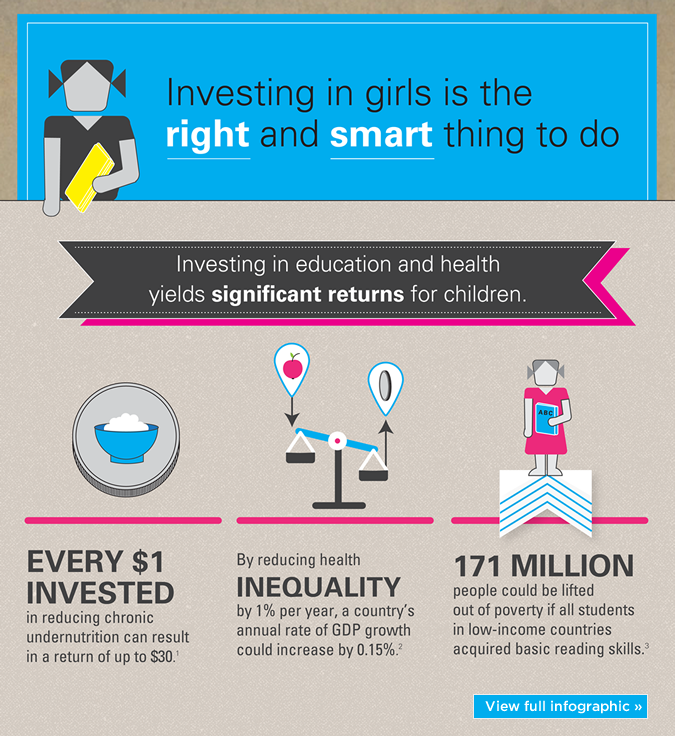The Girl Child
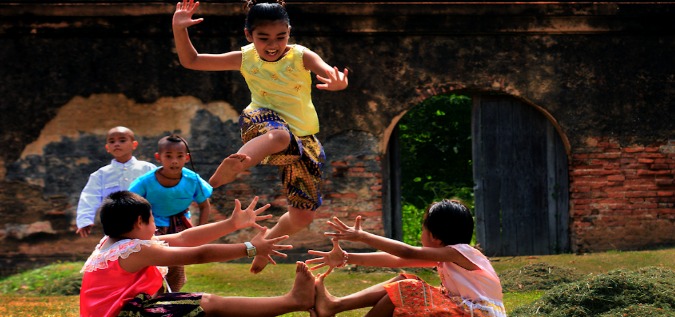
Fast Facts
Infographic courtesy of UNICEF, Every Woman Every Child and UN Global Education First Initiative.
Women of Achievements
Blogging for Democracy - Cambodia
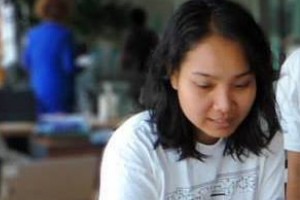 Kounila Keo aka the Blue Lady, started blogging at the age of 19, intent on providing a view of Cambodia as seen by Cambodians, “I wanted to express my opinions – about politics, civil society and simply everything”. Seven years on, at the age of 26, Kounila is a highly regarded journalist and has built a successful media career working for several international organisations. Never betraying her blogging roots, Kounila continues to write regularly, advocating for democracy and freedom of expression to an ever expanding audience of over a thousand followers.
Kounila Keo aka the Blue Lady, started blogging at the age of 19, intent on providing a view of Cambodia as seen by Cambodians, “I wanted to express my opinions – about politics, civil society and simply everything”. Seven years on, at the age of 26, Kounila is a highly regarded journalist and has built a successful media career working for several international organisations. Never betraying her blogging roots, Kounila continues to write regularly, advocating for democracy and freedom of expression to an ever expanding audience of over a thousand followers.
Young, and restless, to bring lasting change - India
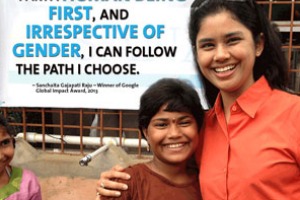 Sanchaita Gajapati Raju is only 30 years of age, but can already claim numerous accomplishments – she is a trained lawyer and political scientist, filmmaker and media professional. Despite the various accolades she earned in these competitive fields, she chose to leave a corporate job and establish an NGO focused on water and sanitation in a country where close to 60 per cent of the over one billion people in the country are forced to defecate in public due to lack of much-needed sanitation facilities.
Sanchaita Gajapati Raju is only 30 years of age, but can already claim numerous accomplishments – she is a trained lawyer and political scientist, filmmaker and media professional. Despite the various accolades she earned in these competitive fields, she chose to leave a corporate job and establish an NGO focused on water and sanitation in a country where close to 60 per cent of the over one billion people in the country are forced to defecate in public due to lack of much-needed sanitation facilities.
Articles
China’s ‘left-behind girls’ learn self-protection
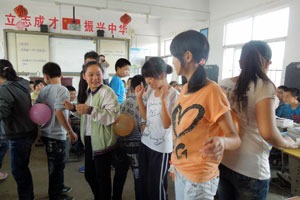
Organization: UN Women
Safe spaces for girls left by migrating parents have been set up and trainings are on-going for children, teachers, community leaders and public authorities to prevent sexual violence, supported by the UN Trust Fund to End Violence against Women.
more »
“It’s important for youth to be involved at the high level” – Tahere Si’isi’ialafia, Samoa
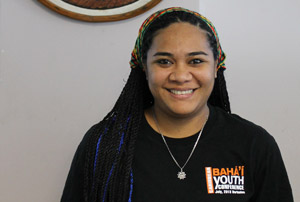
Organization: UN Women
Tahere Si’isi’ialafia, a 24-year-old Baha’i youth from Samoa is a board member of the Pacific Youth Council who is taking part in the Third International SIDS Conference in her native Samoa. She speaks to UN Women about the importance of involving youth in such high-level fora.
Champions
Our champions are women and men who have made gender equality and women's empowerment their cause and mission in life. Hear from them on why they have made women's rights their top priority and what you can do to join them! Our newcomers this month:
Aung San Suu Kyi - Advocate for the rights of women and girls
One of the world’s most renowned human rights activists, Daw Aung San Suu Kyi has dedicated much of her life to bringing democracy, dignity and human rights to Myanmar’s citizens.She is a founding member and current Chairperson of the National League for Democracy, and was elected to parliament in 2012. She spent decades under house arrest, before being freed in 2010. She was awarded the Nobel Peace Prize in 1991 for her non-violent struggle for democracy and human rights, and has received more than 130 awards and honors, including the Commander of the French Légion d'honneur in 2012, and the U.S. Congressional Gold Medal in 2008.
Feđa Mehmedović – Teaching young men that showing respect goes hand in hand with being ‘cool’
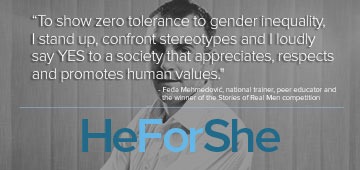 Feđa Mehmedović is a national trainer, peer educator and the winner of a competition promoting gender equality in Bosnia and Herzegovina, Stories of Real Men. He has trained more than 10,000 young people as part of his Young Men as Allies programme in preventing violence against women. He leads by example, encouraging young men to treat women and girls with respect, and takes great pride in showing the world that it is cool to stand up for women’s rights. Feđa Mehmedović is a #HeForShe advocate.
Feđa Mehmedović is a national trainer, peer educator and the winner of a competition promoting gender equality in Bosnia and Herzegovina, Stories of Real Men. He has trained more than 10,000 young people as part of his Young Men as Allies programme in preventing violence against women. He leads by example, encouraging young men to treat women and girls with respect, and takes great pride in showing the world that it is cool to stand up for women’s rights. Feđa Mehmedović is a #HeForShe advocate.
Editor's picks
Flexible Learning Strategies in Bangladesh
Where: Bangladesh
Organization: UNESCO
Twelve-year-old Shuhana Akhter lives in a remote area of Bangladesh that falls beyond the reach of the country’s formal education system. Her older sisters have dropped out of school, but young Shuhana continues on thanks to a community learning center established by the Friends in Village Development Bangladesh. With her prospects broadened by the education offered at the center, she now dreams of becoming a doctor. This touching story from UNESCO Bangkok’s Asia and Pacific Programme of Education for All (APPEAL) Unit is an inspiring account of the power of flexible learning strategies to change lives.
Malala Yousafzai addresses UN Youth Assembly
Where: New York, USA
Organization: UN
Education activist Malala Yousafzai marks her 16th birthday, on Friday, 12 July 2013 at the United Nations by giving her first high-level public appearance and statement on the importance of education. Malala became a public figure when she was shot by the Taliban while travelling to school last year in Pakistan -- targeted because of her committed campaigning for the right of all girls to an education. Flown to the United Kingdom to recover, she is now back at school and continues to advocate for every child’s right to education.
No Time To Lose: On Child Marriage and Female Genital Mutilation/Cutting
Organization: UNICEF
More than 130 million women alive today have undergone some form of Female Genital Mutilation or Cutting (FGM/C) in the 29 countries in Africa and the Middle East where it is the most common. That’s more than four times the entire female population of the UK.
More than 700 million omen alive today were married as children, four times the entire female population of the US. More than one-third were married before they turned 15. South Asia is home to more than half of child brides worldwide. India lone accounts for one-third.
Despite progress in decreasing the use of the practice, more than 30 million more girls may be cut in the next decade alone if action against FGM/C is not accelerated. Educate yourself on this inhumane practice and what can be done to stop it in UNICEF’s video on child marriage and FGM/C..
Op-ed: For a better world for all
Where: New York, USA
Organization: UNFPA, UN Women
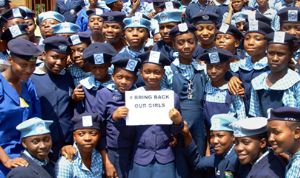 At 100 days since the abduction of 276 girls in Nigeria and during the first-ever Girl Summit, the Executive Directors of UN Women and UNFPA reiterate that we must keep demanding action to bring back our girls.
At 100 days since the abduction of 276 girls in Nigeria and during the first-ever Girl Summit, the Executive Directors of UN Women and UNFPA reiterate that we must keep demanding action to bring back our girls.
more »
Migration and girls’ education: Looking beyond economics - Asia Pacific
Organization: ILO
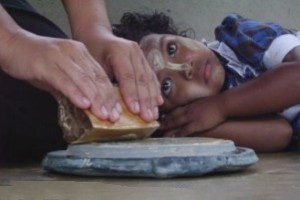 Across the Asia-Pacific region, millions of men and women migrate every year and a significant number leave behind dependent children, often in the care of grandparents or other relatives. Although researchers and policymakers have tended to focus on international migrants, it is clear that the vast majority of this migration is internal and takes place within the boundaries of nation states.
Across the Asia-Pacific region, millions of men and women migrate every year and a significant number leave behind dependent children, often in the care of grandparents or other relatives. Although researchers and policymakers have tended to focus on international migrants, it is clear that the vast majority of this migration is internal and takes place within the boundaries of nation states.
Families remaining behind: Impacts of migration on families and children’s education - Asia Pacific
Organization: IOM
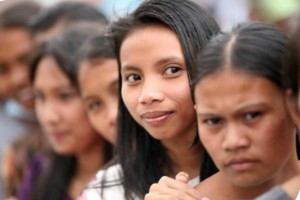 In 2013, there are an estimated 232 million international migrants living abroad. This is a consistent rise since 1990, when 154 million international migrants were living abroad. The number of international migrants is expected to reach up to 405 million by 2050 (Global Migration Group, 2013).
In 2013, there are an estimated 232 million international migrants living abroad. This is a consistent rise since 1990, when 154 million international migrants were living abroad. The number of international migrants is expected to reach up to 405 million by 2050 (Global Migration Group, 2013).
Right to an education? Children of migrant workers
Where: Thailand
Organization: IOM
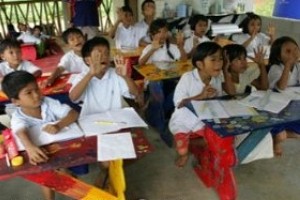 According to Article 28, the Convention on The Rights of the Child (CRC) states parties should make “primary education compulsory and available free to all.” 193 countries have ratified the convention, including all countries in Asia-Pacific. Nevertheless, many children in the region still have no access to education. Migrant children are one of the most vulnerable groups facing challenges in accessing education, and these challenges are often multiplied if parents are undocumented migrants.
According to Article 28, the Convention on The Rights of the Child (CRC) states parties should make “primary education compulsory and available free to all.” 193 countries have ratified the convention, including all countries in Asia-Pacific. Nevertheless, many children in the region still have no access to education. Migrant children are one of the most vulnerable groups facing challenges in accessing education, and these challenges are often multiplied if parents are undocumented migrants.
Resources
- Report Details Troubling Toll of Gender-Based Violence in Asia-Pacific Schools (UNESCO Bangkok, 2014)
- School related Gender Based Violence in the Asia Pacific region (UNESCO Bangkok, 2014)
- Bullying targeting secondary school students who are or are perceived to be transgender or same-sex attracted:Types, prevalence, impact, motivation and preventive measures in 5 provinces of Thailand, English | Thai (UNESCO Bangkok, 2014)
